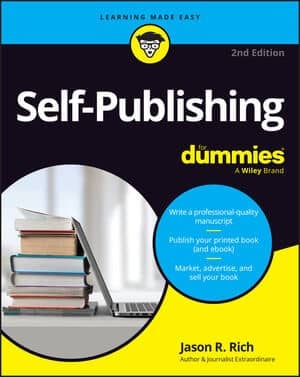You might think that the hardest part of being a writer is finishing a book. But it can be very difficult to get your work noticed and out onto the bookshelves. You can approach literary agents, publishers, or self-publish your work.
Using a literary agent
You can approach publishers directly, but many publishing houses only consider manuscripts that come from literary agents. So they’re very useful middle men. It can be difficult to assess the experience and ability of agents, particularly due to the recent rise in businesses purporting to be agencies offering services to writers.
For those in the UK, check out the Association of Authors’ Agents (AAA). All AAA members sign up to a self-governing code of practice, details of which are on the website. In the U.S., have a look at Writers.Net. Other good tools to help your search are The Writers and Artists Yearbook and The Writer’s Handbook, both of which are published annually. You’ll be able to draw up a shortlist of those agencies which may suit you best.
The next step is to check whether the agency accepts unsolicited submissions. You can find out either by browsing their website or calling them. Just don’t launch into a pitch for your book when on the phone. Send your submission by post, and never by email or fax, and enclose the first three chapters. Check whether the agency has any special submission requirements.
Self-publishing your literary work
If you can’t find an agent for your book (or your agent couldn’t find a publisher), you could consider self-publishing. In recent years, this has become much easier and cheaper. Consider whether your novel was rejected because of one of the following obstacles to success:
An ineffective submission letter which makes you sound as though you’d be difficult to work with.
A dreadful title or an overly long manuscript (anything over 120,000 is generally too long to tempt readers).
An unattractive, unpersuasive pitch.
An overly long or impenetrable pitch.
The novel is too familiar or old fashioned.
The advantages of self-publishing are that you will keep the rights to your work, will receive the full proceeds from your book, and will have total control of every step of the process. The downsides are that you probably won’t have the expertise or money to get your book into the public domain.
If you’re looking to make it as an author, you’ll probably need the backing of a publishing house at some point. In the meantime, try boosting your profile by entering writing competitions. Set up a writing blog. You could serialise your work, or just write in a way that showcases your talent.

